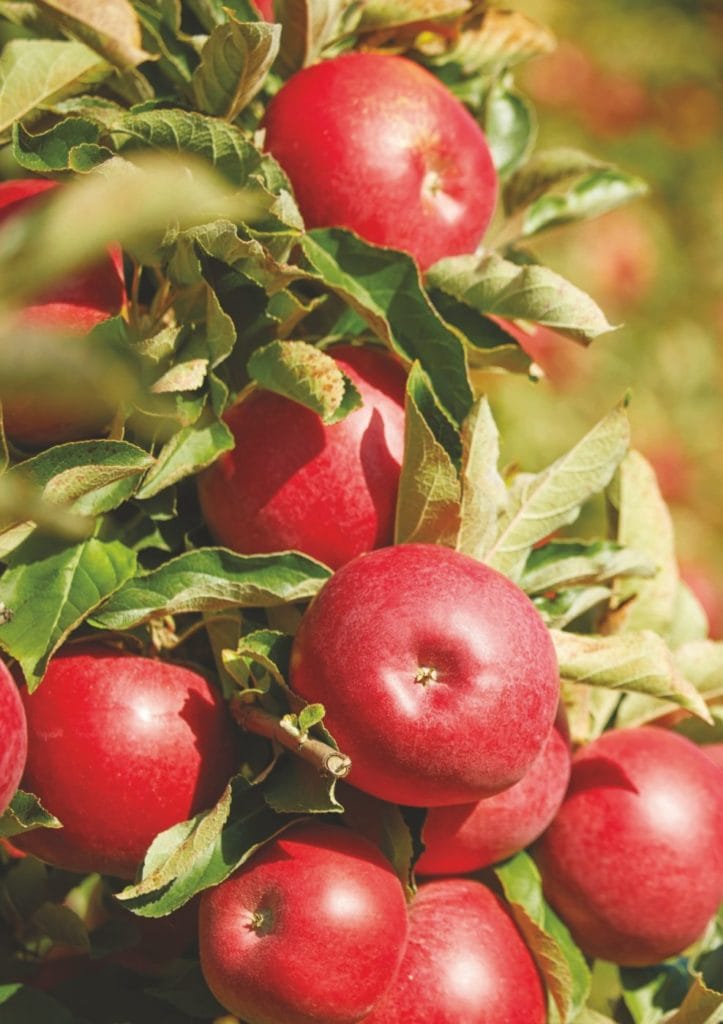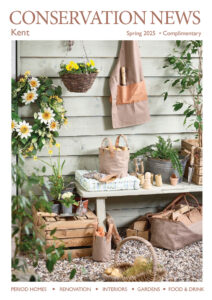The Big Apple
They may be fruit bowl staples, but there’s far more variety to, and endless more usages for, the humble apple than might immediately meet the eye.
Over 2,300 different varieties have been grown in Britain, of every texture, colour and shape, from nutty, spicy late-season types to fresh, light ones that smell faintly of berries.

We’ve been eating apples since forever: first in central Asia, then in Turkey and the rest of Europe too. Quite when we Brits first got into them isn’t clear, but they crop up in all the best myths – Greek, Norse, Christian. And in fairytales, they’re everywhere!
Apples are perennial; after blossoming in spring they are gathered in autumn and ready for winter, when we can retreat to the kitchen and bake to our heart’s content. ‘Early-eaters’ like the Beauty of Bath and Laxton’s Early Crimson ripen in late summer. Soft and sweet, they don’t keep long but are the perfect foil for summer’s late blackberries. Autumn heralds the arrival of the ‘late-keepers’, like the Blenheim Orange, with its longer shelf-life and robust flavour. Eaten out of the hand, ‘late-keepers,’ with the longest storage time of all, bring a refreshing tang to the end of a long winter. Once you’ve munched on a crisp May Queen, the latest-keeper of all, you’ve reached the end of the season.
Of course, apples come in two types, eaters and cookers. Eaters are the sweetest (and the tastiest). Cookers are bigger and way more acidic – the Bramley is the classic British one. They can be very sour and most demand you add sugar to them while cooking.
As for what to do with them: what can’t you do? Chutney, crumbles, Charlotte, pie and sauce are all classics; apple enjoys being paired with most meat, but pork, sausages and bacon especially.
As with everything, the best apples are tree-ripened and recently picked; do it yourself when you can, and some orchards allow you to. When picking, cup the fruit in your hand and twist; if the stalk comes away from the tree easily, the juicy treat is ready for you.
Brogdale Collections in Faversham is the home of the National Fruit Collection and houses over 2,000 varieties including rare and heritage specimens. Visitors can enjoy orchard walks, fruit displays, juice tasting, cider sales and more. (www. brogdalecollections.org). For those wanting to grow their own visit Grow at Brogdale, the on-site fruit tree nursery.
Posted in: Food and Drink
